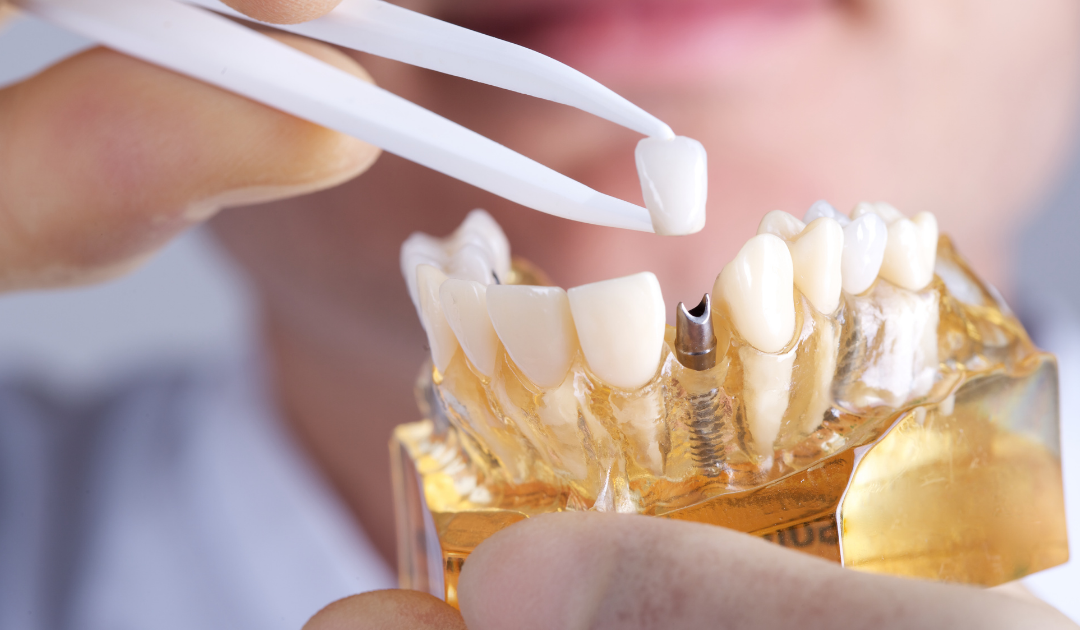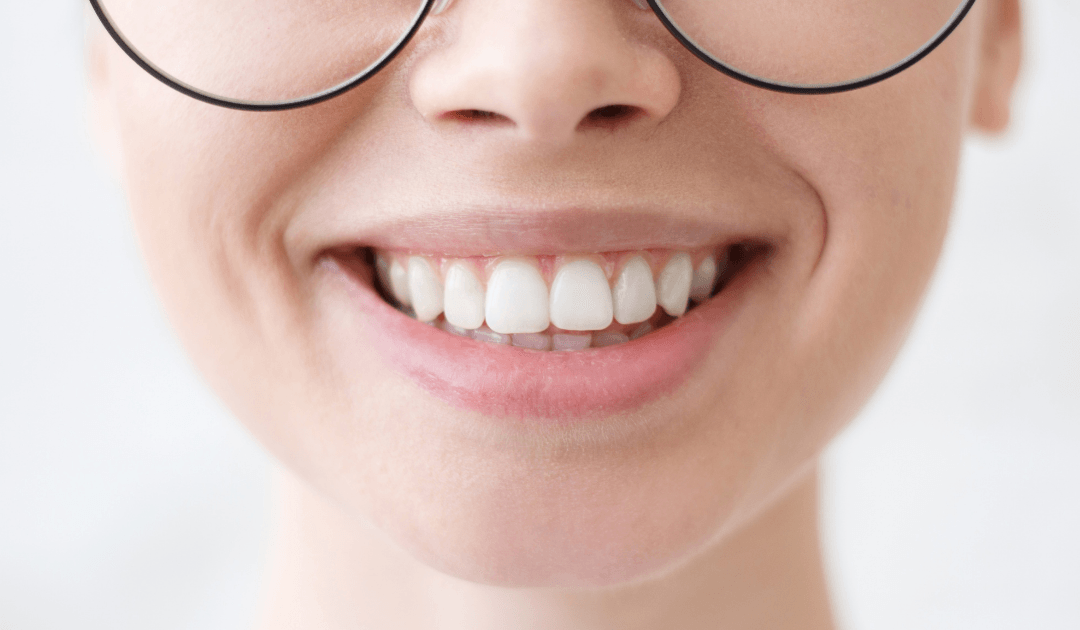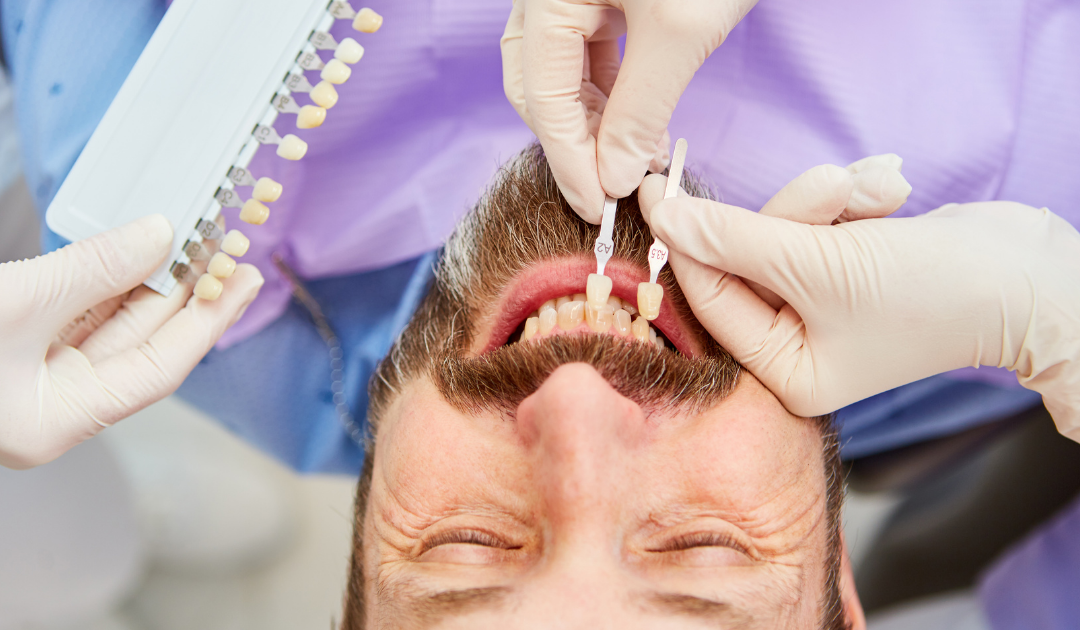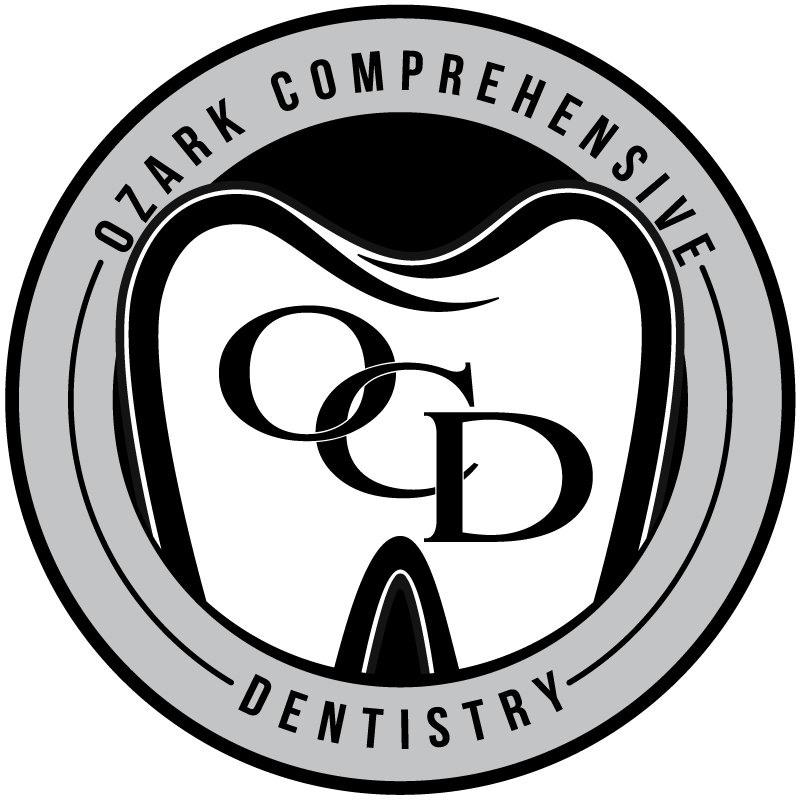Blog
Read Our Dental Care Blogs

By Admin
•
17 Mar, 2021
Everyone has had bad breath at some point in their life. It’d be strange if you’ve never experienced bad breath! Maybe you can’t get enough garlic bread, or you had a more extended day than you thought you would, and it’s been a bit too long since you last brushed your teeth. Bad breath, also known as halitosis, is something that almost 33% of our population experienced regularly. The primary cause (aside from smelly food) is the bacteria that live in our mouth that’s responsible for breaking down food and proteins. The breakdown of food matter leads to the production and release of volatile sulfur compounds (VSCs), which smell less than ideal. The good news is, you can help to control the smell caused by this bacteria depending on what the culprit is! You Just Can’t Get Enough Extra Garlic and Onions This probably sounds like a no-brainer, but these vegetables are a member of what’s called the Allium family. They contain high concentrations of sulfur compounds, which, as we mentioned above, is one of the critical causes of bad breath. The pungent aroma that you associate with garlic is due to the allicin created when you crush it. To combat this odor, you should brush and floss immediately after consuming a large portion of onions or garlic. It may not completely eliminate the smell as the smell of garlic can linger for up to two whole days! Your Teeth Have a Little Too Much Plaque On Them Plaque is a bacterial film that forms on your teeth if they’re not taken care of daily. They can lead to the production of those nasty-smelling VSCs we mentioned earlier. Thankfully, this is an easy fix. You should see your dentist regularly and practice an excellent at-home oral regimen. It’s crucial to incorporate flossing into this routine to ensure 100% of the plaque is removed, so no undesirable VSCs begin to form. You’re Experiencing “Dry Mouth” On a Daily Basis Saliva is a natural deterrent to bad breath because it helps wash away any bacteria that could produce volatile sulfur compounds. There are various medications that have the side effect of “dry mouth,” so it’s not uncommon to experience this sensation. There are special dry mouth tablets that can help to increase your saliva production. If you’re not a fan of having a continuous piece of hard candy in your mouth, you can also challenge yourself to drink more water throughout the day. It’s also been recommended to chew sugar-free gum throughout the day to help encourage saliva production. Beyond these common causes of bad breath, there is a chance that your bad breath is indicative of a more serious medical condition like gum disease, allergies, lactose intolerance, or diabetes. If you’re worried your bad breath is more serious, you should reach out to your dentist right away. For more information or to schedule an appointment, give us a call at 479-337-4070 .

By Admin
•
17 Mar, 2021
Spring is on its way, which means the arrival of allergy season for millions of Americans! If you have a sensitivity to pollen, dust mites, or grass, you’re probably dreading the next few months, and we don’t blame you! Unfortunately, those who suffer from untreated obstructive sleep apnea (OSA) tend to experience allergies worse than those who don’t have OSA. There’s no question that OSA and allergies are related but let’s talk about how they affect one another. What is Obstructive Sleep Apnea (OSA)? OSA is a sleep condition caused by severe breathing issues, resulting in a disturbed sleep pattern. The lapse in breathing is caused when the upper airway is blocked. If you were awake, your brain would immediately react and open up the airway. When you’re asleep, this reaction can be delayed or non-existent, leading to stopped breathing. When your brain reacts to the stopped breathing, it often results in waking you up, disrupting your sleep pattern. The constant disruptions in your sleep pattern will cause you to fail to reach the stage of a deep sleep, which is essential for you to get a “good night’s sleep.” How Can Allergies Make OSA Worse? Allergies can cause an increased amount of nasal congestion, which, as we all know, leads to breathing issues. When you’re already experiencing problems breathing as you sleep, increased nasal congestion only exacerbates the issue. Some people experience the swelling of their tonsils as a side effect of having allergies, aggravating your OSA. Anything that leads to congestion or blockages in your through is going to increase the severity of OSA. Allergies Can’t Cause Sleep Apnea, Can They? The short answer is “no.” Allergies have not been proven to cause sleep apnea explicitly. What has been verified, though, is that allergies often worsen sleep apnea symptoms. On their own, allergies can cause disruptions to your sleep pattern, so when combined with the disturbances caused by sleep apnea, it can feel like they go hand-in-hand. Fortunately, there are a variety of over-the-counter medications that can assist in subduing your allergy symptoms. Before taking any medication, you should consult with your dentist to ensure it won’t interfere with any treatments you may be seeking for your sleep apnea. For more information or to schedule an appointment, give us a call at 479-337-4070 .

By Admin
•
05 Mar, 2021
Absent-mindedly chewing on ice is a fairly common habit, especially during the warm summer months! While this is a great way to keep yourself preoccupied and cool at the same time, it can be damaging to your teeth, enamel, and even your gums. You may have been told to skip the ice chewing, but do you really know why or how it actually affects your teeth? Like other hard foods, chewing on ice can cause damage to your smile, like chipping or cracking your teeth. In extreme cases, it can even cause damage to your enamel as well, leading to increased sensitivity to hot or cold food and liquids. If you’ve already had dental work like veneers, crowns, or fillings, there’s a chance that chewing ice could cause problems for that as well. Overall, chewing ice is a big no-no, but how can you break the habit? Switch Out the Crunch If it’s the crunchy noise and sensation you find appealing, try switching ice out for a different snack like carrots, cucumbers, snap peas, or apple slices! Not only does this negate any potential damage to your teeth, but you’ll also get an extra serving of fruits or veggies, which is always a good thing! Make the Switch to Slush If your reason for chewing ice is related to the cooling sensation, try swapping ice cubes for slush ice or even crushed ice! Because the ice is in smaller portions, there’s less of a chance of damage to your teeth. Crushed ice may still cause damage but not as intense as full ice cubes. Let it Melt Away Try to let the ice melt in your mouth instead of chewing it. This will still allow for that refreshing coolness without the risk of damage to your teeth. Letting it melt will also elongate the ability to experience the cooling relief as well. Avoid the Temptation If you’re out to eat or ordering a meal to go, try ordering a drink with no ice. This will help you to avoid a situation where you might chew on ice without thinking about it. If you’re eating at home, turn off your ice maker or skip the ice cube trays. If there’s no ice to be used, you’ll decrease the possibility of you doing it without thinking! If you’re still having trouble kicking the habit after trying these tricks, there might be an underlying issue. Sometimes craving or chewing ice can be a sign of iron deficiency, but it’s best to consult your dentist before jumping to this conclusion. For more information or to schedule an appointment, give us a call at 479-337-4070 .

By Admin
•
05 Mar, 2021
If you’ve been having trouble sleeping lately, there’s a chance your sleep problems are related to something called “sleep apnea.” Sleep apnea happens when your airway muscles relax during sleep, pinching off the airway, which prevents you from getting enough area, and you may stop breathing for a few seconds until your reflexes kick in. If your sleep is continually being interrupted throughout the night, you’ll wake up feeling like you’ve barely slept, which causes irritability, moodiness, and potentially mood swings. We all know that a good night’s sleep impacts not only yourself but those around you. A rough night of sleep can affect the rest of your day and, eventually, your overall quality of life. Approximately 3-7% of men and 2-5% of women have sleep apnea, so it’s more common than you think. You may be experiencing sleep apnea if you have any of the following symptoms: Loud snoring Restless sleep Insomnia Frequent headaches in the morning Waking up with a sore throat Lack of energy throughout the day Waking up with a choking or gasping sensation Forgetfulness In addition to the physical effects of sleep apnea, research shows that it has a severe impact on one’s mental health. Those who suffer from sleep apnea tend to experience depression, intense anxiety, and other serious mood-related symptoms. If you find yourself experiencing extreme highs and extreme lows daily, in combination with some of the signs we mentioned above, your mood swings might be related to sleep apnea. Those who experience sleep apnea tend to have unusually high glutamate levels and low levels of Gamma-Aminobutyric Acid (GABA). GABA works as a mood inhibitor (or stabilizer), regulating your emotions and keeping you calm when needed. When your GABA cannot regulate high levels of glutamate, your brain becomes incredibly stressed out and is prone to not functioning correctly. Mood swings can have both short-term and long-term effects on your day-to-day life as well as your relationships with close friends or family. If you’re struggling with frequent mood swings, it may be time to contact your dentist and get evaluated for sleep apnea. To learn more or schedule a consultation, give us a call at 479-337-4070 .

By Admin
•
19 Feb, 2021
If you’re considering getting dental implants, chances are you’re looking to fix something specific about your smile. You may have explored the possibility of getting dentures because they’re often less labor-intensive and have a more painless installation process. While dentures can be the right option for some, there are downsides, like the fact that they can move around in your mouth throughout the day. Maybe you have a severely cracked tooth that you’d like to get fixed. Perhaps you’re looking to fix some of the gaps in your smile. Whatever issue you’re looking to solve, we have a solution for you! In addition to the problems we mentioned above, there are a variety of issues that dental implants can help solve: Bone loss Sunken-in appearance Decaying teeth Ill-fitting partials If you’re looking to fix any of these issues, it’s essential to consult with your dentist first so you can understand what you’re getting yourself into. After you get implants installed, you will need to change your dental routine slightly to accommodate for having unnatural teeth. You may have to change your toothbrush, diet, or toothpaste. In addition to changing some of the products you use, you will have to hold yourself to a higher dental care standard to ensure your implants last as long as they can. While this may seem like a hassle, it’s a small price to pay when considering the confidence a great smile can give you! Imagine a life without having to worry about the appearance of your smile. Sounds pretty great, right? Dental implants help to provide a healthy, natural look that compliments your overall face shape. Dental implants are unique in that they’re hard to discern from natural teeth, giving you a fantastic smile that doesn’t look fake in any way. For more information or to schedule a consultation, give us a call at 479-337-4070

By Admin
•
19 Feb, 2021
Temporomandibular joint disorder (TMD) is a disorder of the jaw muscles and nerves caused by injury or inflammation to the temporomandibular joint. This joint is the connection between your jawbone and your skull. When your temporomandibular joint is injured or inflamed, it can cause pain when moving your jaw. You can experience various symptoms due to the inflammation, such as intense headaches, migraines, the tendency to grind your teeth, and other more severe issues. If gone untreated, not only can TMD cause unrelenting pain, it can also increase the risk of: Tinnitus Permanently compromised hearing Difficulties with balance Recurring dizziness Issues with vision The good news is, there’s no reason to let your TMD go untreated. There are a variety of non-invasive treatment options that you can begin today! Even if you’re unsure if some of your symptoms are related to TMD, there’s a chance that they may be related to other dental issues that could cause TMD. If you’re experiencing any of the following symptoms, it’s time to see a specialist: Pain or tenderness in the jaw area Popping or clicking of the jaw Tight, stiff, or sore jaw and neck muscles Blurred vision Earaches Toothaches Muscle spasms in your jaw Pain at the base of your tongue Pain, swelling, or a lump in the temple area Temporomandibular joint disorder is 100% treatable, and when it comes to treatment, the sooner, the better. The sooner we can begin assessing your symptoms, the sooner we can start developing a treatment plan. There’s no need for you to live in pain every day. Let’s get you on the path to a pain-free life! Call for more information to schedule your consultation! 479-337-4070

By Admin
•
18 Feb, 2021
Most people think of smiling as a response to something that brings you joy or makes you laugh. While this is undoubtedly true, most don’t realize that smiling can also be a conscious movement. Countless studies have confirmed that smiling can elevate not only your mood but the mood of those around you as well. Here are four reasons why smiling can improve your overall health! Smiling Relieves Stress Stress has a nasty way of showing up in different ways throughout our bodies, particularly in our faces. When you smile, your brain is tricked into thinking something “good” is happening and it reacts accordingly, releasing certain chemicals associated with a good mood. These chemicals are also known to help combat stress. If you’re feeling overwhelmed or stressed out, try smiling! Smiling is Contagious Just like yawning is contagious, so is smiling! When you smile, and your mood improves, so do the moods of those around you. The part of your brain responsible for your controlling the facial expression of smiling is an unconscious automatic response area. This means that smiling can be completely unconscious, particularly when it comes to our habit of mirroring someone else’s smile. Smiling Lowers Your Blood Pressure Smiling can cause a measurable reduction in your blood pressure! Give it a try with a blood pressure monitor at home! Sit down, take a few breaths, and take a reading. Once you’ve recorded that reading, smile for one full minute and take another read while smiling. You’ll notice a difference in your blood pressure! Smiling Makes You More Positive There’s a saying, “fake it until you make it”, and that is true, in a sense. It’s easy to stay stuck on negative events, but the more you smile, slowly you’ll begin to notice that your daily problems seem a lot smaller than they used to. When you smile, you can trigger your brain into thinking something positive is going on, which will begin to activate the rest of your body to follow suit. Let’s get you smiling more often! Sometimes people don’t smile as often because they are insecure about their smile. We can work with you to give you the smile you deserve so you can be proud of showing off those pearly whites! Give us a call today to schedule an appointment 479-337-4070

By Admin
•
18 Feb, 2021
If you struggle with painful headaches or chronic migraines, it might be a symptom of temporomandibular joint disorder (TMD). These can be difficult to diagnose without digging into a few other details about the headache itself. The temporomandibular joint (TMJ) acts as a hinge, connecting your jawbone to your skull, which is why those who have TMD experience intense headaches regularly. Where Do TMD-related Headaches Occur? TMD-related headaches only present themselves in a select number of areas, and they generally start in: The jaw or the temporomandibular joint itself The forehead area The back of the neck Behind your eyes And they spread over the rest of your head. If you’re prone to headaches to begin with, TMD can increase the intensity significantly. Are There Other Symptoms to Look For? Headaches are likely not the only thing you’re experiencing if your headaches are related to TMD. It’s rare to get a TMD-related headache without experiencing at least one of the following symptoms: Pain in the jaw joint Limited jaw movement of “locking” of the jaw Click or popping sensations in your jaw joint Neck, shoulder, or back pain Numbness or tingling in your arms Ringing in your ears or hearing loss If you’re suffering from frequent headaches or migraines, there is a chance it’s unrelated to TMD but could be related to a different dental issue. Issues in your mouth and jaw area are often the root cause of chronic headaches or migraines. To learn more or to schedule a consultation, give us a call at 479-337-4070 , and we’ll help your life get back to normal.

By Admin
•
12 Feb, 2021
If you’re scared of the dentist, you certainly aren’t the only one. The Dental Fears Research Clinic at the University of Washington found that 5%-8% of Americans avoid the dentist out of fear. Setting up an appointment may not be your idea of “fun.” It’s not uncommon to be uncomfortable about having someone else’s hands and loud tools in your mouth. Drilling, suctioning, and cold water sprays aren’t exactly relaxing. Nevertheless, some can grin and bear it because they know that it’s essential to protect their smile’s integrity. We have a few tips that will help you overcome your anxiety regarding getting dental work done. Get Accustomed to the Tools Being Used The more you know, the better. Seeing a tray of oddly shaped metal tools is a little scary. It may help you feel more comfortable to have a bit of a “meet and greet” with the tools and your dentist before your visit so you can understand what each device is used for. This will decrease the amount of uncertainty around your visit. Be Honest About Your Fears As we said earlier, the dentist’s fear isn’t uncommon, and we are well-equipped to deal with any questions or reservations you have. To support you as best we can, we need you to be as honest as possible. We want to know what about the process makes you uncomfortable or nervous. If it’s the equipment, anesthesia, smell, or the potential pain, we can adapt our approach accordingly. Bring a Friend Bringing a friend or family member with you (someone who isn’t afraid of dentists) will generally make you feel more comfortable because you’re in the presence of someone you know and are familiar with. Your buddy should be comfortable talking to the dentist on your behalf, so be prepared to discuss any medical concerns with this friend. Drown Out the Noise If it’s the sound of the drill and suction tubes that make you uneasy, try bringing some earplugs or noise-canceling headphones. Most dentist offices typically have a TV in exam rooms that you may be able to link your headphones to. It’s a good idea to have some music ready in case you aren’t able to look at a TV screen. We know the dentist can be a frightening event for some, and we’re not here to judge you; we’re here to help you. If you’d like to discuss your concerns or ask questions, we’d be happy to help you through this process, so you feel as comfortable as possible. Our goal is to keep your smile healthy, and in order to do that, we need to see you! For more information or to schedule an appointment, call us at 479-337-4070 .

By Admin
•
12 Feb, 2021
When it comes to creating a picture-perfect smile, there are various approaches and options to consider. For most, dental bonding and porcelain veneers are near the top of the list. There are a variety of factors to consider, such as appearance, sheen, and maintenance. While both are great options, there are pros and cons to each that need to consider. Dental Bonding Bonding is applied to your existing teeth to enhance their overall appearance. It’s made out of a special resin so it can be molded into any shape, making it sculptable for any smile. This resin can be used to protect decaying teeth or chipped teeth. In addition to protecting teeth, it can be used for teeth that have lost their color or part of their enamel, and it’s an excellent use for covering roots that may have receded due to gum disease. During the application process, you’ll choose a color for the bonding material itself. From there, it’ll be applied and shaped to fit the rest of your tooth. As the bonding hardens, a superior finish will develop, and your tooth underneath remains unchanged. The process is simple, and the upkeep is minimal as well. It would be best if you continued to take care of your smile with an in-depth process that includes flossing, brushing your teeth, and rinsing with mouthwash twice a day or after foods that are known to stain. If you’re a chronic nail biter or tend to grind your teeth at night, dental bonding may not be the best option for you. Dental Veneers Veneers are arguably one of the most popular procedures in the cosmetic dental industry. Veneers are a thin coating made of porcelain and applied directly on top of your natural teeth. They are created to fit each tooth and are often developed in a lab to match your teeth precisely. Veneers can be used to cover discolored, chipped, damaged, or even misaligned teeth. Unlike bonding, veneers’ material is made out of porcelain, which makes it hard from the very start. Because of their hardness, your natural teeth will need to be shaped to make room for the veneer itself. This means your smile will be changed permanently. Given the nature of the creation of veneers, the process often takes longer from start to finish and may require multiple visits. Things to Consider There are a few factors you should consider when deciding which avenue is the best approach: Cost Durability Time Permanency Appearance Overall, it’s best to consult with us and talk through your history, the reason behind wanting a cosmetic procedure, and your dental hygiene process before making a final decision. With our experience and knowledge, we can provide insight and recommendations that will make the decision easier. For more information or to schedule an appointment, call us at 479-337-4070 .
Content, including images, displayed on this website is protected by copyright laws. Downloading, republication, retransmission or reproduction of content on this website is strictly prohibited. Terms of Use
| Privacy Policy






